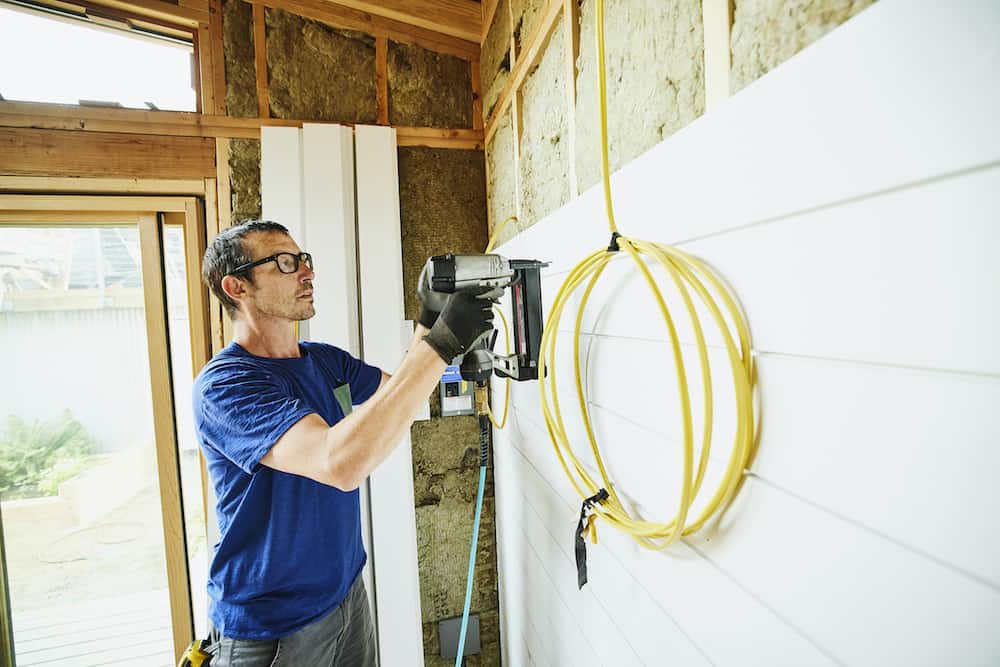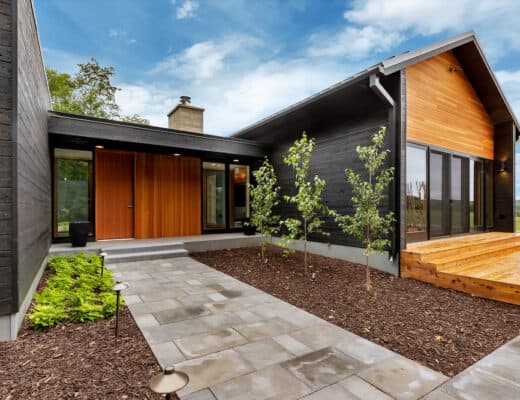Renovating your home can be an exciting and rewarding project. It offers an opportunity to personalize your space and enhance functionality. However, achieving your dream home isn’t always smooth sailing. In fact, many do-it-yourself (DIY) enthusiasts have learned their lessons the hard way through renovation mistakes.

Understanding these common pitfalls and how to avoid them can save you time, money, and unnecessary stress. In this article, we’ll explore the basics of home renovation, common mistakes in DIY projects, the financial implications of renovation mishaps, and how to avoid these pitfalls. Let’s dive in!
Understanding the Basics of Home Renovation
The Importance of Planning
Any successful renovation project starts with a well-thought-out plan. Planning thoroughly helps you define your goals, establish a realistic budget, and create a timeline for completion. It also allows you to identify any potential obstacles or challenges that may arise along the way.
When it comes to planning, it’s crucial to consider not only the aesthetic aspects of your renovation but also the practical ones. For example, if you’re renovating your kitchen, you’ll need to plan the layout to ensure optimal functionality carefully. This means considering factors such as the placement of appliances, the flow of traffic, and the amount of counter space available.
Furthermore, neglecting to plan adequately can lead to costly delays and mistakes. For instance, failing to obtain the necessary permits before starting your renovation can result in fines or even legal issues. By planning, you can ensure that all the necessary paperwork is in order and that your project complies with local regulations.
Necessary Tools and Equipment
Equipping yourself with the right tools and equipment is essential for a smooth renovation process. Using the wrong tools or outdated equipment can compromise the quality of your work and even pose safety risks. Before embarking on any project, ensure you have the necessary tools, such as hammers, saws, drills, and safety gear.
Investing in good-quality tools may be initially expensive, but the long-term benefits are worth it. High-quality tools make tasks easier, reduce the chances of mistakes, and can be used for future projects. Additionally, having the right equipment can save you time and effort. For example, if you’re planning to repaint a room, using a paint sprayer instead of a brush can help you achieve a more even and professional-looking finish in less time.
It’s also important to consider the safety aspect of using tools and equipment. Wearing protective gear, such as goggles, gloves, and a dust mask, can help prevent accidents and protect your health. Additionally, make sure to familiarize yourself with the proper usage and maintenance of each tool to ensure their longevity and safe operation.
Common Mistakes in DIY Home Renovations
Overestimating Skills and Underestimating Time
One of the most common mistakes in DIY renovations is overestimating one’s abilities. While DIY projects can be fulfilling, it’s important to know your limits. Taking on complex tasks without the necessary expertise can lead to shoddy workmanship, potential safety hazards, and costly repairs in the future.
For example, let’s say you decide to tackle a bathroom renovation. You may have watched a few online tutorials and feel confident in your abilities. However, plumbing and electrical work require specialized knowledge and experience. Without the proper skills, you may end up with leaky pipes or faulty wiring, which can cause significant damage to your home.
Additionally, it’s crucial to be realistic about the time required to complete a project. Underestimating the time needed can cause undue stress and rushed work, resulting in subpar outcomes. Imagine starting a kitchen remodel and realizing halfway through that you don’t have enough time to finish before an important family gathering. This can lead to hasty decisions and a less-than-ideal finished product.
Ignoring Building Codes and Regulations
Building codes and regulations are in place for a reason: to ensure the safety and structural integrity of your home. Ignoring these standards can lead to serious consequences. Failing to obtain the required permits or not following proper construction techniques may result in fines, forced undoing of work, or even legal repercussions in extreme cases.
Let’s say you’re adding an extension to your home without obtaining the necessary permits. While it may seem like a hassle, permits are essential to ensure that the new structure meets safety standards and doesn’t encroach on neighboring properties. Without proper permits, you may face hefty fines and be required to tear down the entire addition.
Seeking guidance from building professionals or local authorities can help you navigate the complex world of regulations and ensure compliance. They can provide valuable insights and advice on how to proceed with your renovation while adhering to all the necessary codes and regulations.
The Financial Implications of Renovation Mistakes
Unplanned Expenses Due to Errors
Renovation mistakes can quickly eat into your budget. The cost of rectifying errors, purchasing extra materials, or hiring professionals to fix shoddy workmanship can drastically impact your finances. It’s essential to establish a contingency fund to accommodate unforeseen expenses that may arise throughout the project.
However, let’s delve deeper into the potential unplanned expenses that can arise due to renovation mistakes. One common mistake is underestimating the complexity of the project. For example, you may start renovating your bathroom, only to discover that the plumbing system needs a complete overhaul. This unexpected expense can throw your budget off balance and leave you scrambling to find additional funds.
Meticulous planning and research can also help you avoid unnecessary expenses. Understanding the scope of the project and having a comprehensive budget breakdown can prevent unexpected financial burdens. By conducting thorough research, you can identify potential challenges and estimate the costs associated with them. This way, you’ll be better prepared to handle any unforeseen expenses that may arise.
Impact on Property Value
While renovations are often undertaken to enhance the value of a property, mistakes can have the opposite effect. Poorly executed renovations can decrease the overall value of your home. Prospective buyers may be deterred by visible flaws or the need for costly repairs in the future.
However, let’s explore further how renovation mistakes can impact your property value. One common mistake is over-personalizing the design choices. While it’s important to make your home reflect your personal style, going too far can alienate potential buyers. For example, installing a highly specific and unconventional feature may limit the pool of interested buyers, ultimately affecting the resale value of your property.
To maximize your return on investment, it’s advisable to consult real estate professionals or home appraisers before commencing renovations. They can provide valuable insights on which areas to focus on and ensure your improvements align with market expectations. By seeking expert advice, you can make informed decisions that will not only enhance your property’s value but also attract potential buyers in the future.
How to Avoid Common Renovation Pitfalls
Seeking Professional Advice
One of the best ways to avoid renovation mistakes is to seek professional advice. Experts in the field can provide valuable insights, offer guidance on design choices, and provide technical expertise. They can help you navigate challenging aspects of the project and steer you away from potential pitfalls.
For example, if you’re planning to renovate your kitchen, a professional designer can help you optimize the layout, ensuring that you have a functional and efficient space. They can also suggest innovative storage solutions that maximize the use of available space, making your kitchen both practical and aesthetically pleasing.
Furthermore, professionals can assist you in selecting the right materials for your renovation project. They have extensive knowledge of various materials and can recommend those that are durable, sustainable, and within your budget. This expertise can save you from making costly mistakes and ensure that your renovation stands the test of time.
Investing in Quality Materials
Quality materials are the foundation of a successful renovation. Cutting corners when it comes to materials can lead to compromised durability, poor aesthetics, and frequent repairs. Opting for low-quality materials may seem cost-effective initially, but they often require more frequent replacements or repairs, ultimately costing you more in the long term.
When choosing materials for your renovation, it’s essential to consider not only their durability but also their environmental impact. Sustainable materials, such as bamboo flooring or recycled glass countertops, not only contribute to a greener planet but also add a unique touch to your space.
Additionally, investing in high-quality materials can enhance the value of your home. Potential buyers are often willing to pay a premium for renovations that are built to last and showcase superior craftsmanship. So, by choosing quality materials, you’re not only benefiting yourself but also increasing the resale value of your property.
Lessons Learned from DIY Disasters
Real-Life Renovation Regrets
There’s a wealth of knowledge to be gained from other people’s renovation mistakes. By learning from their experiences, you can avoid similar pitfalls. Listening to personal anecdotes and gathering insights from renovation forums or online communities can provide you with valuable lessons and best practices.
Turning Mistakes into Learning Opportunities
Acknowledging that mistakes happen is essential for personal growth and improvement. When confronted with renovation mistakes, focus on finding solutions rather than dwelling on regrets. Embrace the challenge as an opportunity to learn, adapt, and refine your skills.
Engaging with the renovation community and continued education in the field can help you stay updated on the latest techniques, trends, and potential pitfalls to avoid.
In conclusion, embarking on a DIY home renovation project requires careful planning, realistic expectations, and a willingness to learn from both successes and mistakes. By understanding the basics of home renovation, recognizing common DIY pitfalls, considering the financial implications, and adopting proactive strategies to avoid mistakes, you can navigate the renovation process with confidence. Remember: learning from the lessons of others is key to a successful renovation journey. Happy renovating!


